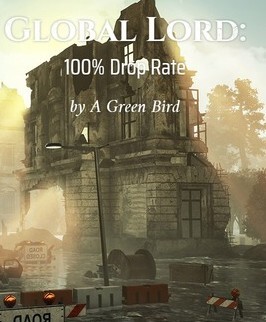Chapter 289: Palu's change
As soon as this opinion was raised, the Palu people immediately felt enlightened!
Hey, can you still do this? It sounds really reasonable. After all, according to the state, after more than ten years, at most twenty years, Palu will be submerged by sea water, and their land will be completely covered by the sea. Without it, you can only go to live in other countries, then naturally, the country does not exist.
After all, so far, the average altitude of their country has dropped by more than ten meters, and now there are only more than twenty meters left, and the further down the road, the remaining land area will decrease geometrically. Because of the mining of phosphate mines, it is uninhabitable, and it is less than a quarter of the country's land area.
The plain areas that are suitable for living are the low altitudes and the areas that will be submerged by sea water at the earliest. Therefore, after more than ten years, the place where they live now may be covered by sea water.
Since their country is destined to disappear soon, why not take advantage of the present and sell the country together with the land? It is said that they can't sell a sum of money so that they can have a better life in Australia.
Of course, the news that most of the habitable areas will be submerged by sea water within more than ten years is the result of indoctrination by the media and experts controlled by Chen William, but Chen William will not worry about it being exposed. After all, according to the eyes of the future, the island of Palu will completely disappear in the imminent volcanic eruption and will be replaced by a new island. Since that is the case, how do you know whether it will really develop as they do according to normal development? Say, what about the islands being covered by sea water more than ten years later?
Moreover, the situation in Palu is very strange. Most of the citizens are descendants of Micronesians. They first lived on hunting and aquaculture, and agriculture was very underdeveloped. It was once occupied by Germany, Australia and Japan. After World War II, it was placed under the trusteeship of Australia, the United Kingdom and New Zealand by the United Nations, and Australia exercised management rights on its behalf.
However, due to the discovery of abundant phosphate mines on the island, Palu has been fighting for independence and finally succeeded in independence in 1968. In 1970, he redeemed the assets of the British Phosphate Company and obtained control of the phosphate mine in his country. He joined in 1999. United Nations, becoming the least populous United Nations member.
In the 1980s, Palu had an annual income of more than 120 million US dollars and a per capita GDP of 15,000 US dollars, surpassing the United States and becoming one of the countries with the highest per capita income in the world.
The poor are rich in the Palu people. After the rich, the Palu people spend a lot of money. They live in luxury houses, everyone drives luxury cars, and places such as airports and golf courses are built on the island.
Because money comes too easily, and the benefits provided by the Palu government to the people are so good that no one has to work, the government builds mansions, medical care, education, and life for everyone for free, making it a veritable "paradise island".
Because he doesn't have to work and eat, drink and play all day, Palu's obesity rate is extremely high. For the sake of national quality, the government will cover the tuition fees for any university you want to study.
But since you can live a life far superior to people in other countries without working, what incentive is there to study hard? Many people are reluctant to go to school.
Therefore, in 2005, the phosphate mines in Palu were almost exhausted, leaving the island covered with barren land and serious environmental damage. After three-quarters of the island was uninhabitable, because the Palu people have always been content to enjoy , and no talent appeared.
Their country's foreign investment has also repeatedly suffered losses. From 1999 to 2003, Palu's fiscal deficit reached 58.49 million Australian dollars. In order to solve the financial problems, the Palu government has taken measures such as selling 5 planes, 3 ships and Palu investor passports, and restricting currency outflows, but with little success.
Palu is in debt and owes A$240 million in high-interest loans to General Electric Financial. Palu’s assets in Australia were auctioned by the asset supervisor entrusted by the creditors and owed to the Export-Import Bank of America for 18.8 million U.S. dollars.
After the resources of Palu are exhausted, they also hope to open source in other ways, but the people have become accustomed to a comfortable life and are not willing to work hard. What should we do?
So I want to learn the offshore tax havens of the Cayman Islands, Virgin Islands, Bermuda, and help some funds avoid tax or money laundering.
But in the final analysis, Palu does not have strong background support, and this kind of business is not something that such a small country can involve. Cayman and Virgin Islands are "British", Bermuda is "US"
In 2003, many banks opened by Palu were accused and sanctioned by the West for engaging in offshore financial business, and their banking business was also frozen. And the entire country has been blacklisted for money laundering by the Financial Working Group, the G7 anti-money laundering agency.
Now Palu can only earn some extra money by working in Australia and accept the assistance of the Australian government. In return, Palu needs to set up a detention center to deal with those refugees who entered Australia illegally.
Therefore, they are living a miserable life now. In the 1980s, Palu's GDP was able to reach 120 million US dollars, but now, last year, Palu's annual GDP was only 4,500 US dollars. Ten thousand U.S. dollars.
If you calculate the inflation of the dollar in the past few decades, it can be said that the regression of the Palu economy is simply amazing.
However, it is also very normal for a country that relies on resources and its people suffer from the "disease of wealth and wealth".
It is also like this, after this deliberate propaganda that the whole country of Palu is in danger of being submerged, once someone proposed it, it was warmly responded by many citizens, hoping to sell the whole country in exchange for large sums of money for them. In the future life... It's not surprising that such strange things can happen.
After Palu appeared to be interested in selling the entire country, some people were really interested in contacting them, but after the initial contact, those people or organizations were immediately scared away by their offer.
You must know that those who are really interested in Palu are often certain organizations or individuals, and national organizations are not very interested in them.
Because if you just buy land, a small island of only 30 square kilometers like Palu doesn't make much sense at all, not to mention that they are not only of little strategic value, but are also about to be submerged by sea water.
As for the territorial sea economic zone to which Palu belongs, there is some value, but you can look at the surrounding Palu—the Pismar Islands, which are relatively close to it. There are more than 200 islands with a total area of 50,000 square kilometers.
The Admiralty Archipelago, an extension of the Pesmerle Islands, which is closer to it, also has 23 large and small islands, of which the largest island, the Machus Island, covers an area of more than 1,600 square kilometers.
If the national level wants to get more territorial water economic zones, these large and small islands are better than Palu. Why should I pay a premium in the name of one more sovereign country to buy Palu?
Therefore, those who are more interested in this are destined to be individuals or organizations that are more interested in the name of a sovereign state, but the Palu government's bid of $5 billion persuaded them to quit.
Because although the completion of this transaction is indeed possible to obtain a sovereign state, but note that it is only possible.
Because after the purchase, can they be recognized by the international community, including the United Nations, to inherit Palu's national status? This is a question, and there are risks.
According to international law, the elements that a sovereign state needs to meet include: a permanent population, a fixed territory, an effective government and the ability to interact with other countries.
First, according to experts' speculation, Palu's territory will be submerged by sea water within 20 years, so just fix the territory, even if all goes well, the validity period of this country is only 20 years.
As for the permanent population, then Palu is already the least populous member of the United Nations, so the population of the new country should not be too small.
You said to keep the current population of Palu? Don't say whether they are willing or not, even if they are willing, then continue to support these comfortable people like this? Isn't it really for charity?
Therefore, those individuals or institutions that are interested in Palu need to consider whether the benefits they have obtained in the name of this country in the past 20 years can cover the cost of purchasing Palu, and are there enough profits to satisfy them?
Hey, can you still do this? It sounds really reasonable. After all, according to the state, after more than ten years, at most twenty years, Palu will be submerged by sea water, and their land will be completely covered by the sea. Without it, you can only go to live in other countries, then naturally, the country does not exist.
After all, so far, the average altitude of their country has dropped by more than ten meters, and now there are only more than twenty meters left, and the further down the road, the remaining land area will decrease geometrically. Because of the mining of phosphate mines, it is uninhabitable, and it is less than a quarter of the country's land area.
The plain areas that are suitable for living are the low altitudes and the areas that will be submerged by sea water at the earliest. Therefore, after more than ten years, the place where they live now may be covered by sea water.
Since their country is destined to disappear soon, why not take advantage of the present and sell the country together with the land? It is said that they can't sell a sum of money so that they can have a better life in Australia.
Of course, the news that most of the habitable areas will be submerged by sea water within more than ten years is the result of indoctrination by the media and experts controlled by Chen William, but Chen William will not worry about it being exposed. After all, according to the eyes of the future, the island of Palu will completely disappear in the imminent volcanic eruption and will be replaced by a new island. Since that is the case, how do you know whether it will really develop as they do according to normal development? Say, what about the islands being covered by sea water more than ten years later?
Moreover, the situation in Palu is very strange. Most of the citizens are descendants of Micronesians. They first lived on hunting and aquaculture, and agriculture was very underdeveloped. It was once occupied by Germany, Australia and Japan. After World War II, it was placed under the trusteeship of Australia, the United Kingdom and New Zealand by the United Nations, and Australia exercised management rights on its behalf.
However, due to the discovery of abundant phosphate mines on the island, Palu has been fighting for independence and finally succeeded in independence in 1968. In 1970, he redeemed the assets of the British Phosphate Company and obtained control of the phosphate mine in his country. He joined in 1999. United Nations, becoming the least populous United Nations member.
In the 1980s, Palu had an annual income of more than 120 million US dollars and a per capita GDP of 15,000 US dollars, surpassing the United States and becoming one of the countries with the highest per capita income in the world.
The poor are rich in the Palu people. After the rich, the Palu people spend a lot of money. They live in luxury houses, everyone drives luxury cars, and places such as airports and golf courses are built on the island.
Because money comes too easily, and the benefits provided by the Palu government to the people are so good that no one has to work, the government builds mansions, medical care, education, and life for everyone for free, making it a veritable "paradise island".
Because he doesn't have to work and eat, drink and play all day, Palu's obesity rate is extremely high. For the sake of national quality, the government will cover the tuition fees for any university you want to study.
But since you can live a life far superior to people in other countries without working, what incentive is there to study hard? Many people are reluctant to go to school.
Therefore, in 2005, the phosphate mines in Palu were almost exhausted, leaving the island covered with barren land and serious environmental damage. After three-quarters of the island was uninhabitable, because the Palu people have always been content to enjoy , and no talent appeared.
Their country's foreign investment has also repeatedly suffered losses. From 1999 to 2003, Palu's fiscal deficit reached 58.49 million Australian dollars. In order to solve the financial problems, the Palu government has taken measures such as selling 5 planes, 3 ships and Palu investor passports, and restricting currency outflows, but with little success.
Palu is in debt and owes A$240 million in high-interest loans to General Electric Financial. Palu’s assets in Australia were auctioned by the asset supervisor entrusted by the creditors and owed to the Export-Import Bank of America for 18.8 million U.S. dollars.
After the resources of Palu are exhausted, they also hope to open source in other ways, but the people have become accustomed to a comfortable life and are not willing to work hard. What should we do?
So I want to learn the offshore tax havens of the Cayman Islands, Virgin Islands, Bermuda, and help some funds avoid tax or money laundering.
But in the final analysis, Palu does not have strong background support, and this kind of business is not something that such a small country can involve. Cayman and Virgin Islands are "British", Bermuda is "US"
In 2003, many banks opened by Palu were accused and sanctioned by the West for engaging in offshore financial business, and their banking business was also frozen. And the entire country has been blacklisted for money laundering by the Financial Working Group, the G7 anti-money laundering agency.
Now Palu can only earn some extra money by working in Australia and accept the assistance of the Australian government. In return, Palu needs to set up a detention center to deal with those refugees who entered Australia illegally.
Therefore, they are living a miserable life now. In the 1980s, Palu's GDP was able to reach 120 million US dollars, but now, last year, Palu's annual GDP was only 4,500 US dollars. Ten thousand U.S. dollars.
If you calculate the inflation of the dollar in the past few decades, it can be said that the regression of the Palu economy is simply amazing.
However, it is also very normal for a country that relies on resources and its people suffer from the "disease of wealth and wealth".
It is also like this, after this deliberate propaganda that the whole country of Palu is in danger of being submerged, once someone proposed it, it was warmly responded by many citizens, hoping to sell the whole country in exchange for large sums of money for them. In the future life... It's not surprising that such strange things can happen.
After Palu appeared to be interested in selling the entire country, some people were really interested in contacting them, but after the initial contact, those people or organizations were immediately scared away by their offer.
You must know that those who are really interested in Palu are often certain organizations or individuals, and national organizations are not very interested in them.
Because if you just buy land, a small island of only 30 square kilometers like Palu doesn't make much sense at all, not to mention that they are not only of little strategic value, but are also about to be submerged by sea water.
As for the territorial sea economic zone to which Palu belongs, there is some value, but you can look at the surrounding Palu—the Pismar Islands, which are relatively close to it. There are more than 200 islands with a total area of 50,000 square kilometers.
The Admiralty Archipelago, an extension of the Pesmerle Islands, which is closer to it, also has 23 large and small islands, of which the largest island, the Machus Island, covers an area of more than 1,600 square kilometers.
If the national level wants to get more territorial water economic zones, these large and small islands are better than Palu. Why should I pay a premium in the name of one more sovereign country to buy Palu?
Therefore, those who are more interested in this are destined to be individuals or organizations that are more interested in the name of a sovereign state, but the Palu government's bid of $5 billion persuaded them to quit.
Because although the completion of this transaction is indeed possible to obtain a sovereign state, but note that it is only possible.
Because after the purchase, can they be recognized by the international community, including the United Nations, to inherit Palu's national status? This is a question, and there are risks.
According to international law, the elements that a sovereign state needs to meet include: a permanent population, a fixed territory, an effective government and the ability to interact with other countries.
First, according to experts' speculation, Palu's territory will be submerged by sea water within 20 years, so just fix the territory, even if all goes well, the validity period of this country is only 20 years.
As for the permanent population, then Palu is already the least populous member of the United Nations, so the population of the new country should not be too small.
You said to keep the current population of Palu? Don't say whether they are willing or not, even if they are willing, then continue to support these comfortable people like this? Isn't it really for charity?
Therefore, those individuals or institutions that are interested in Palu need to consider whether the benefits they have obtained in the name of this country in the past 20 years can cover the cost of purchasing Palu, and are there enough profits to satisfy them?







